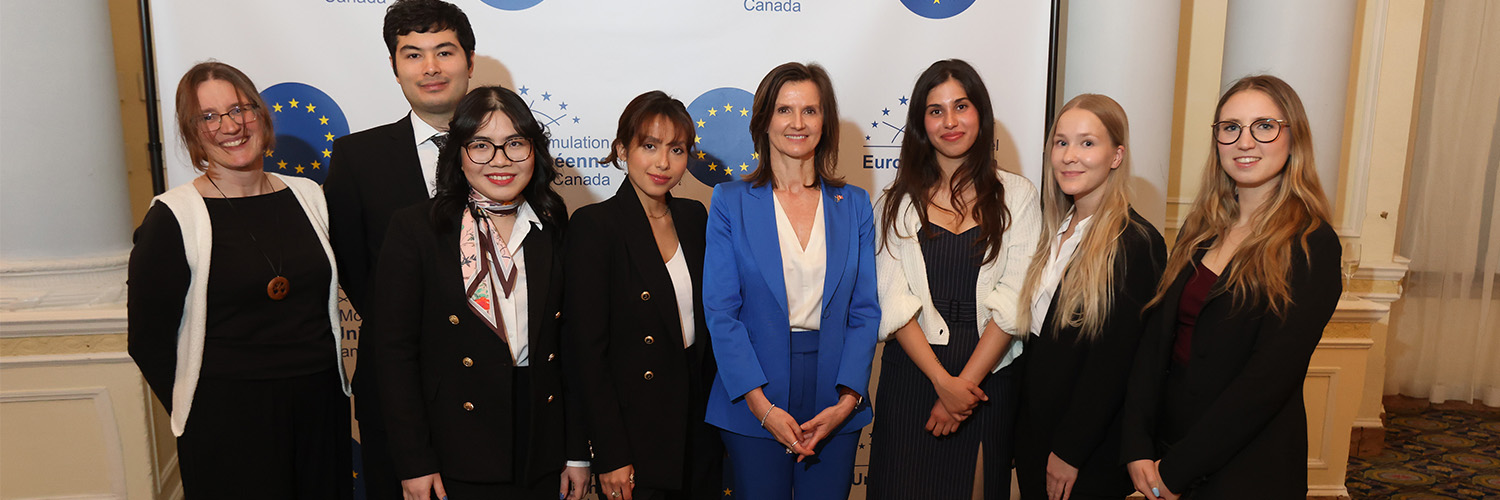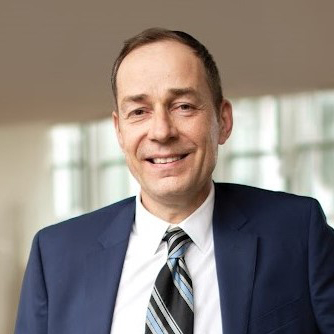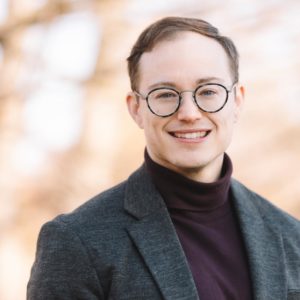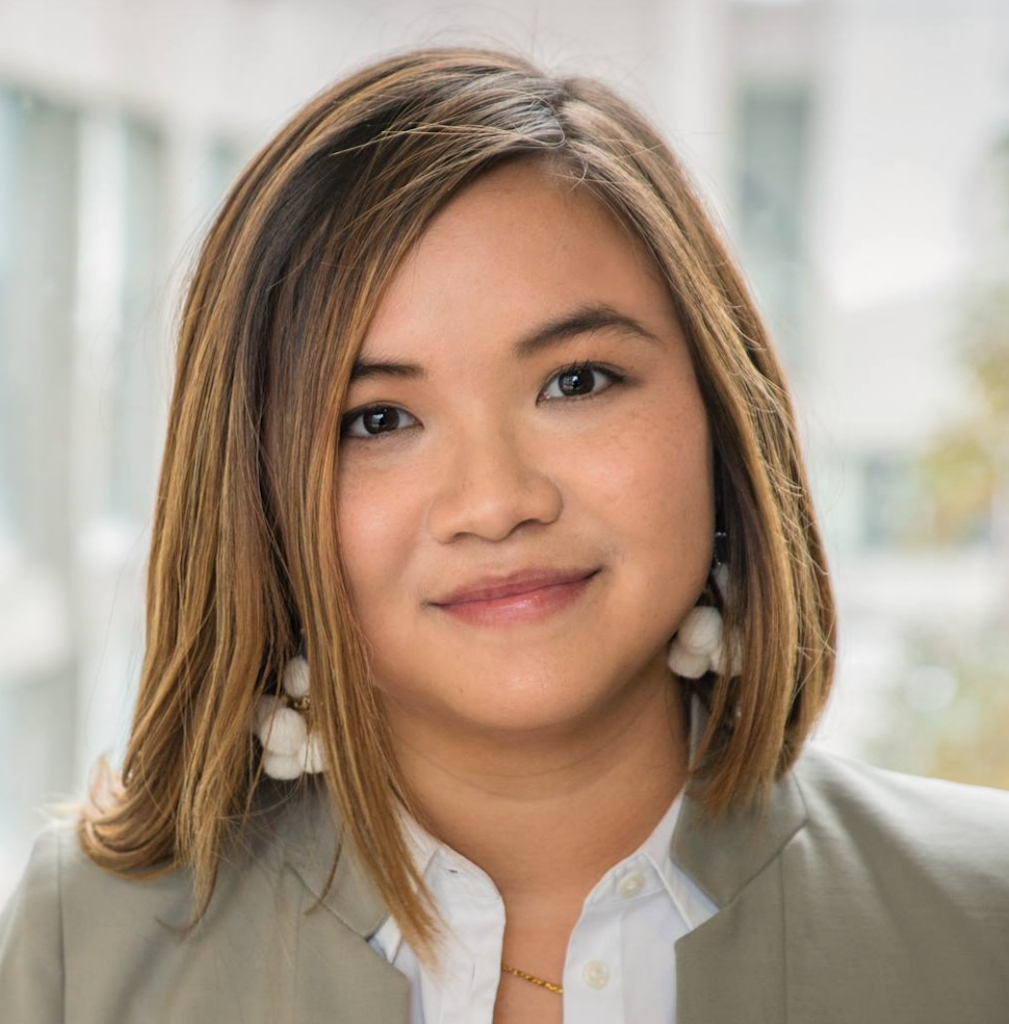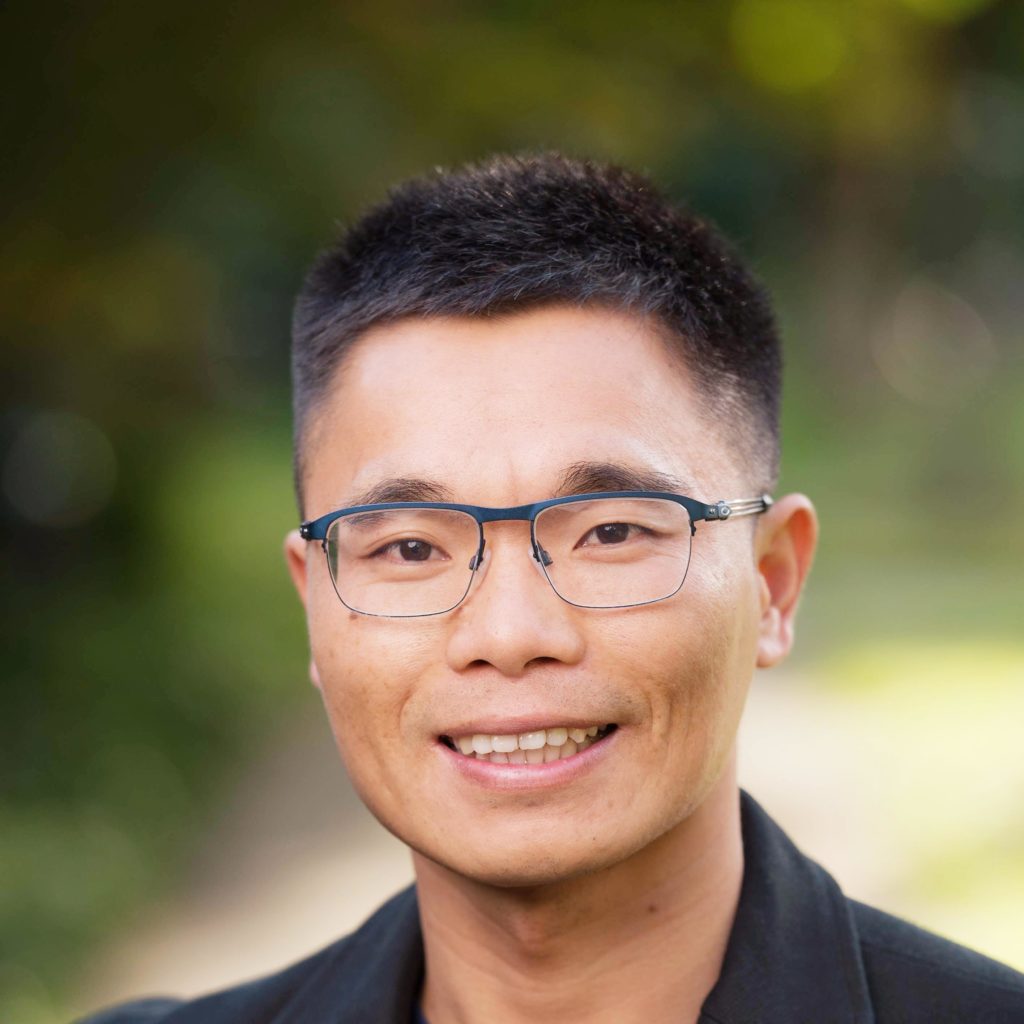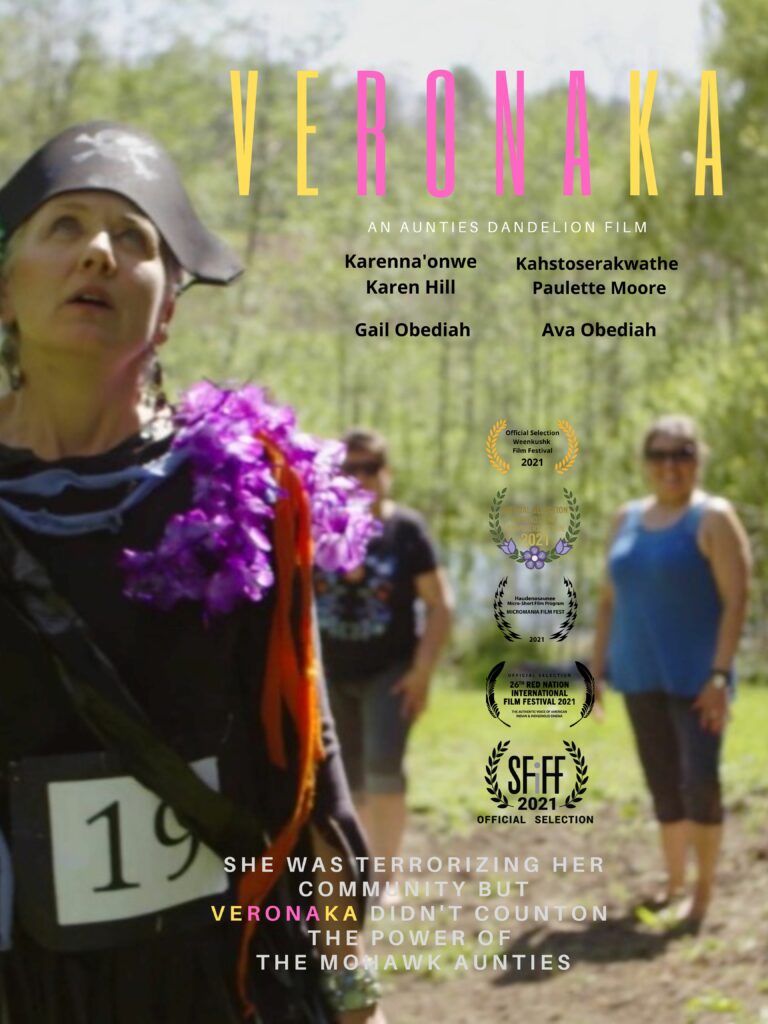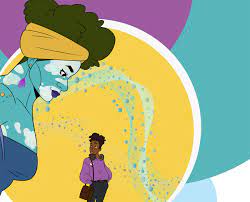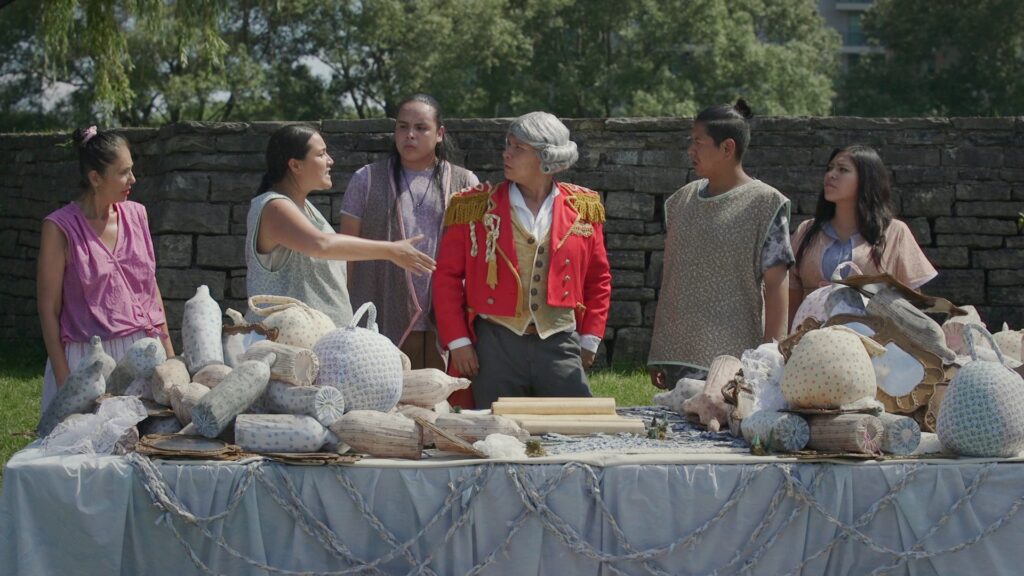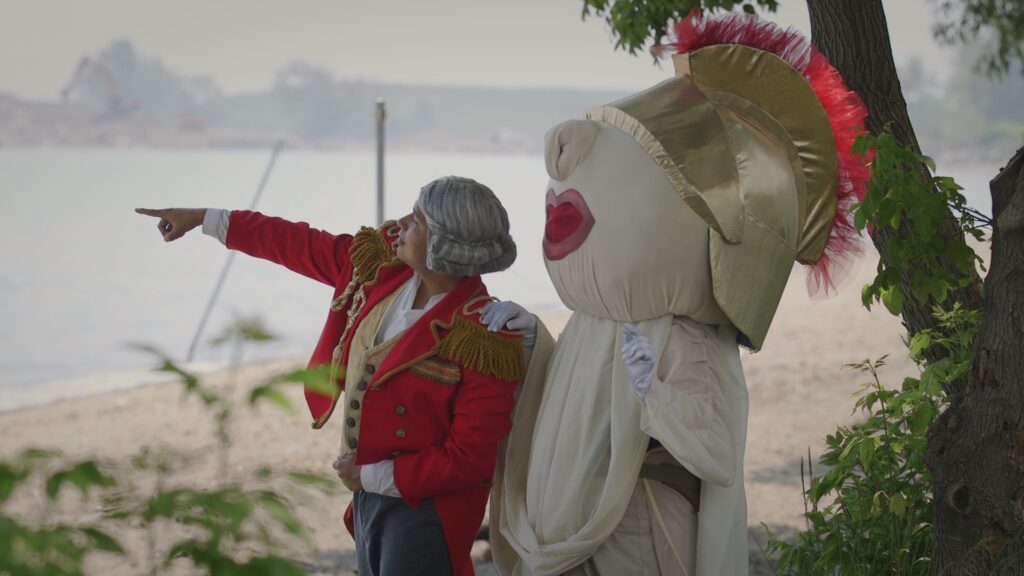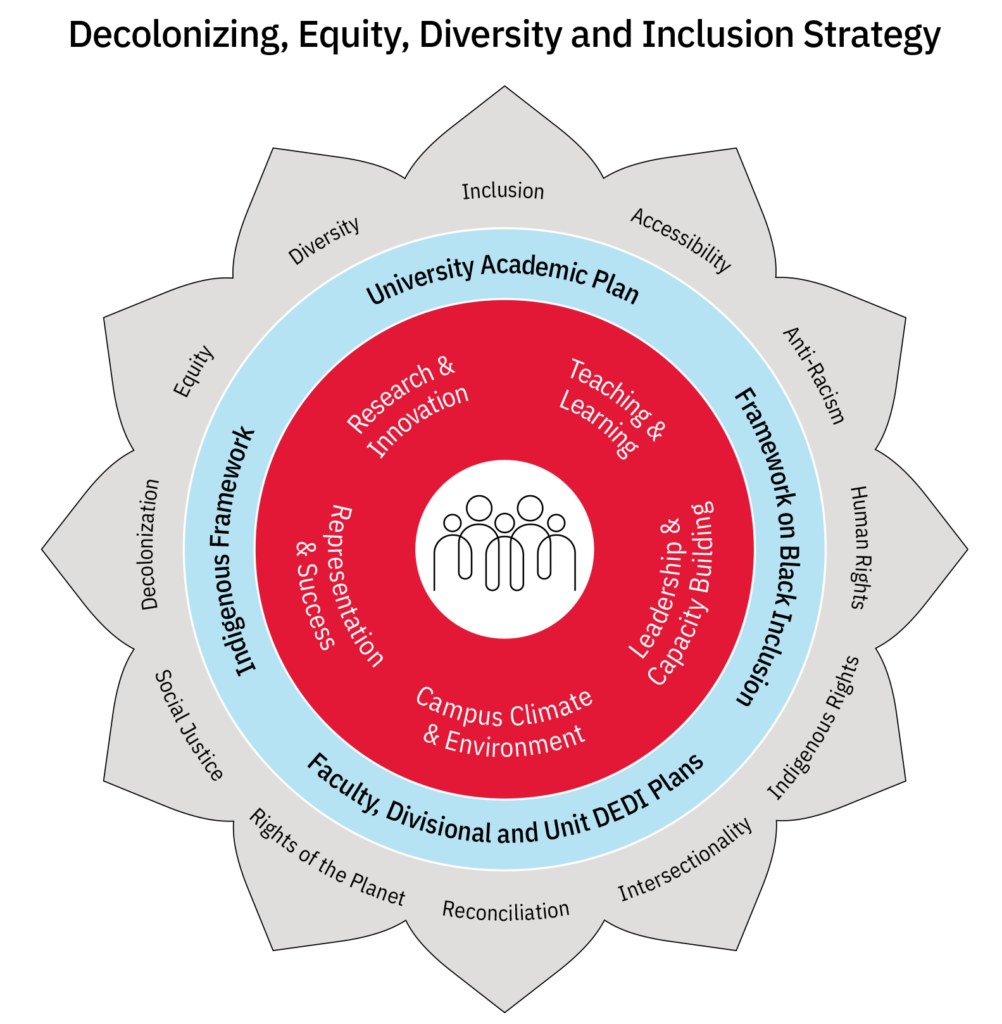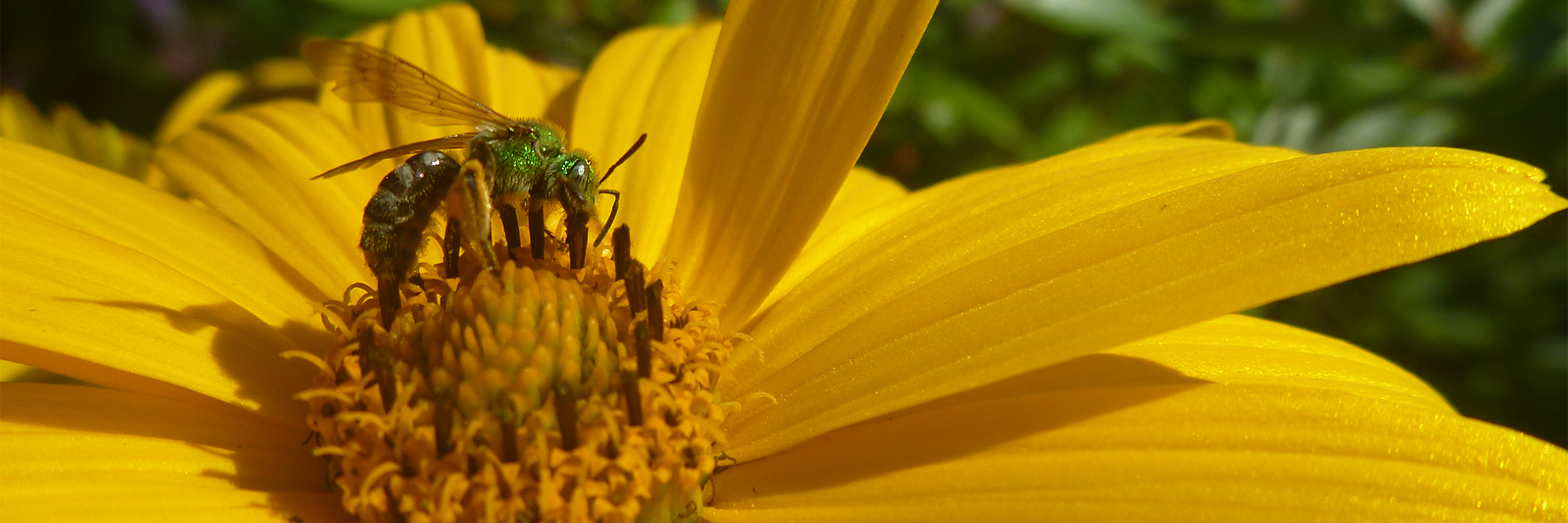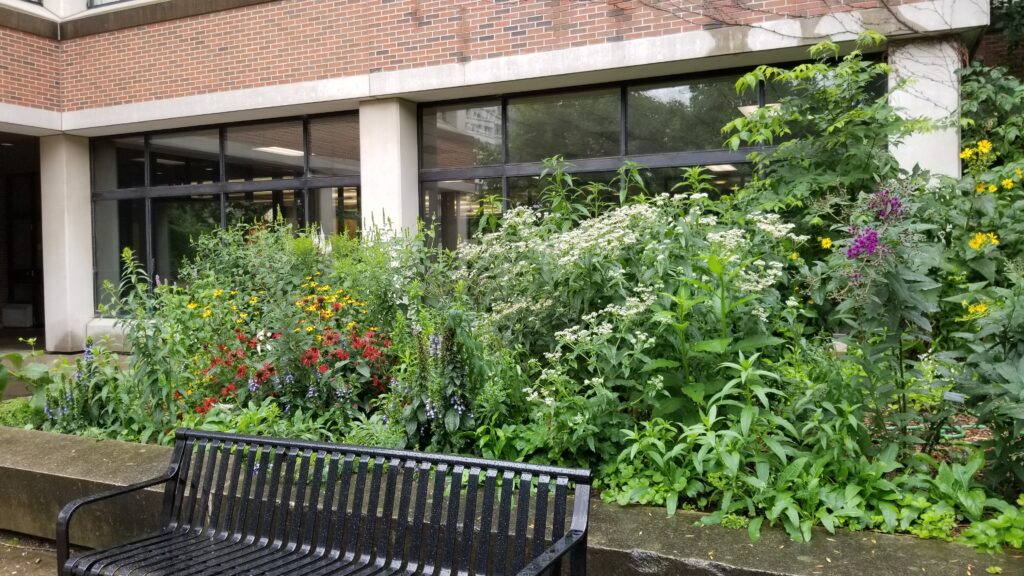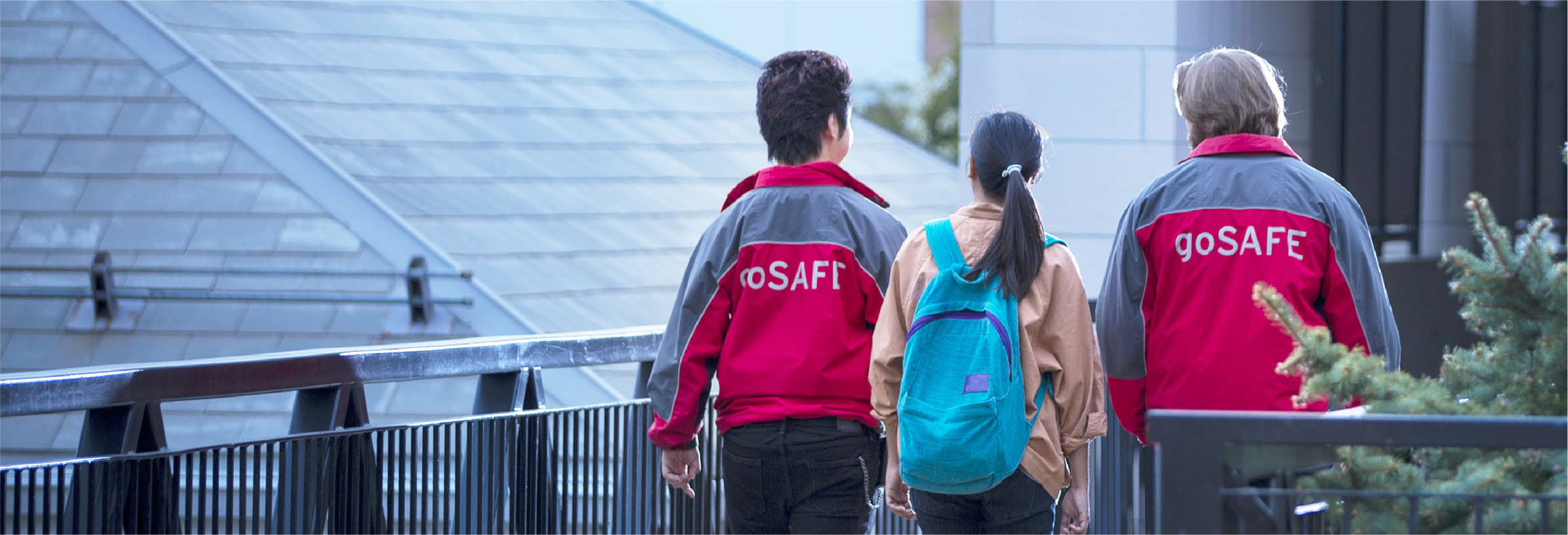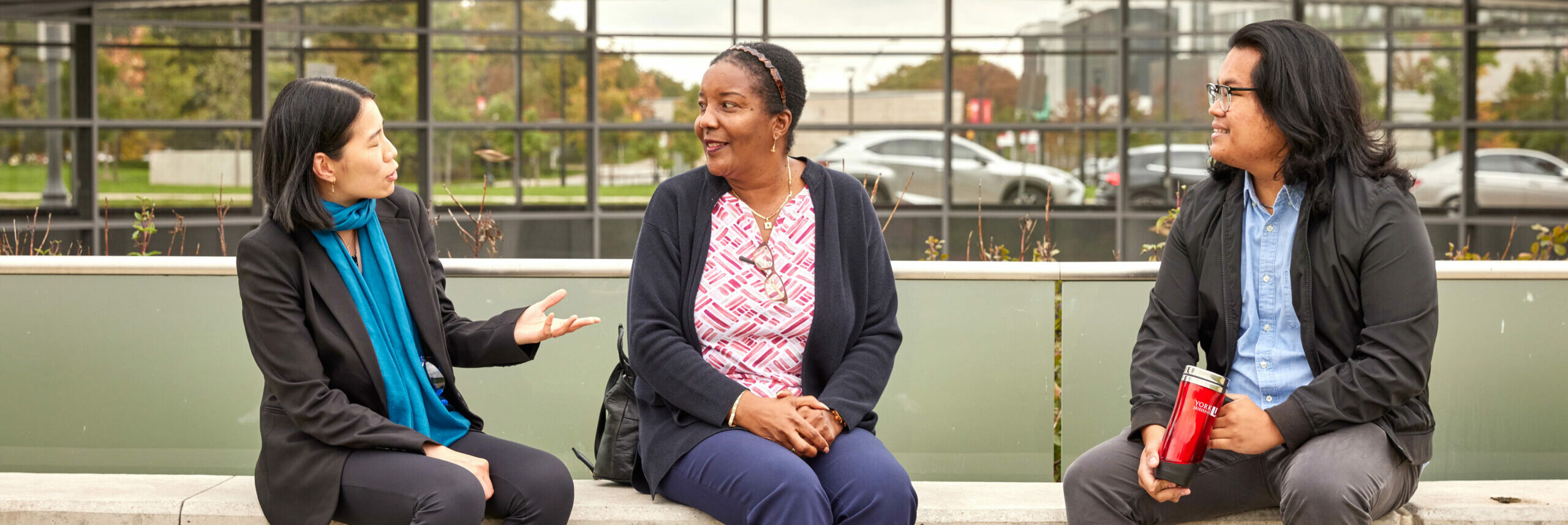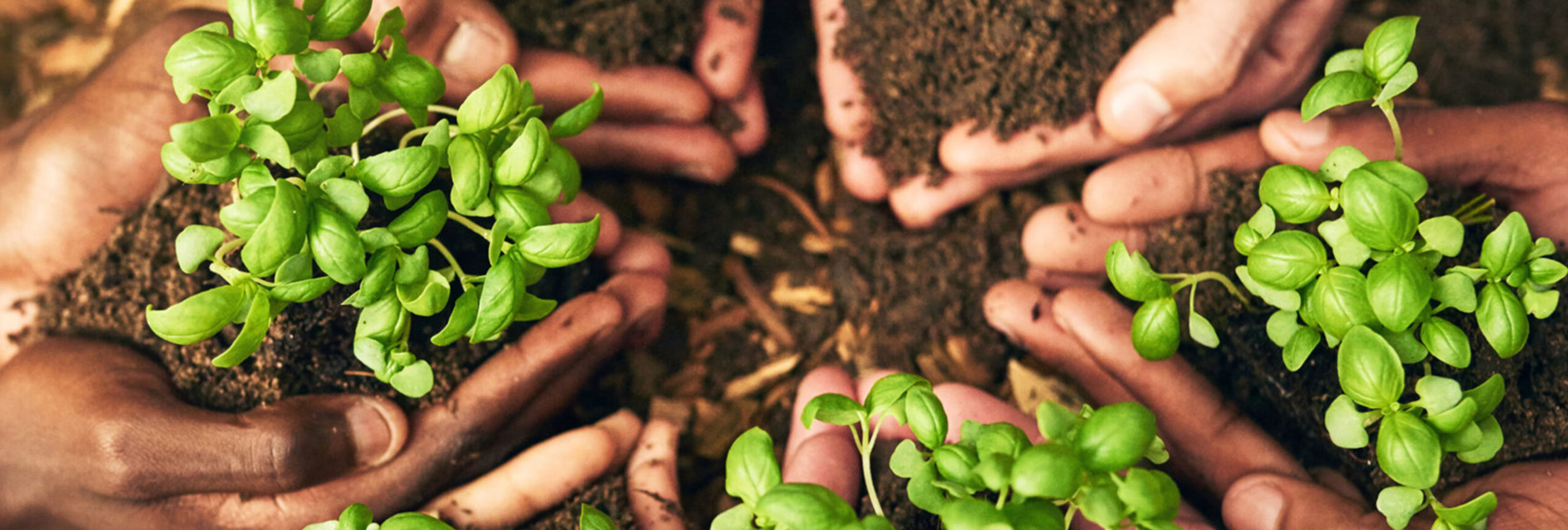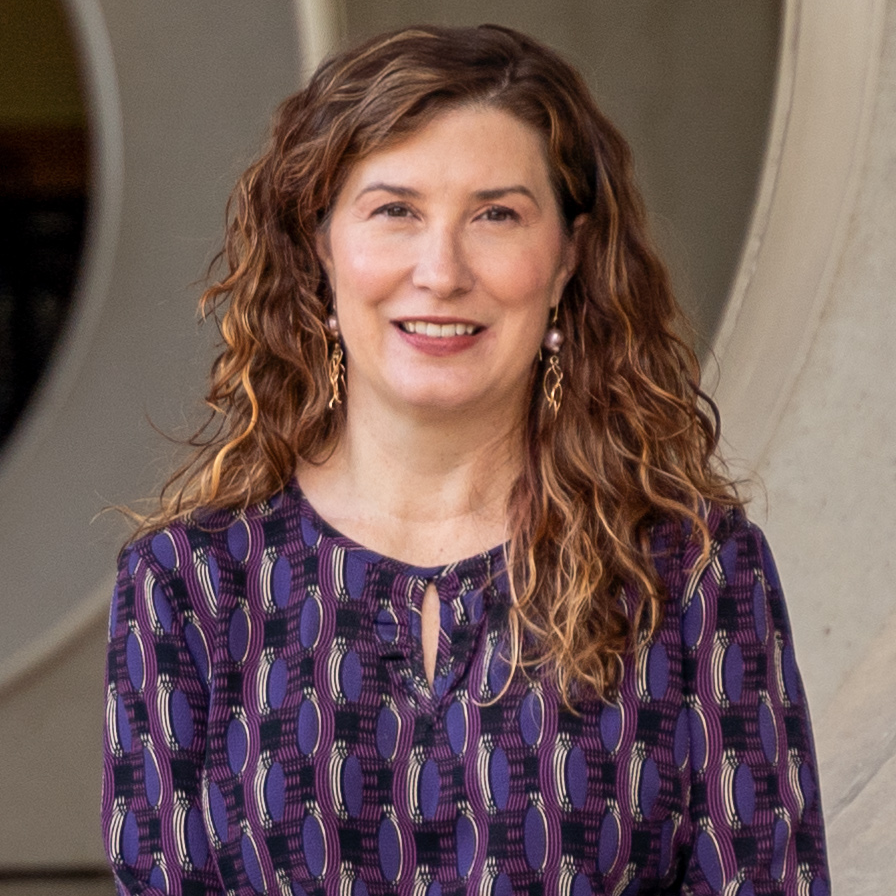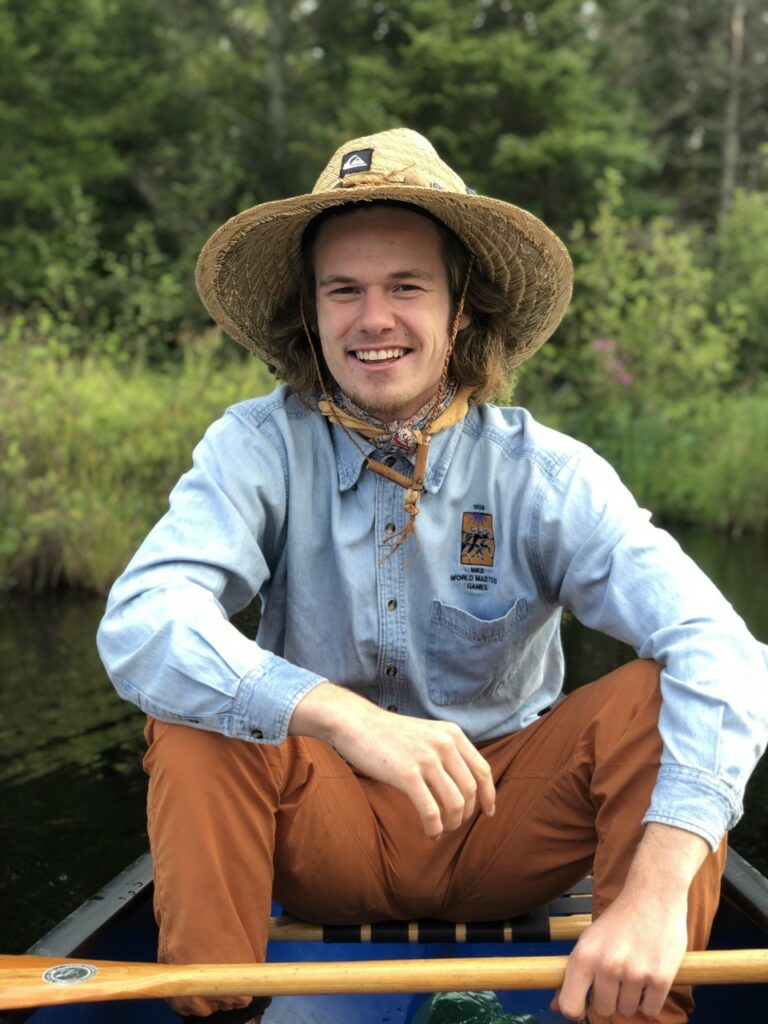Seven York University students were among the nearly 100 participants from 13 universities across Canada to compete at the first-ever officially sanctioned model European Union (EU) in Ottawa from May 5 to 7.
The two-day policy negotiation simulation invited undergraduate students from across the country with an interest in international and translatlantic relations.
Department of Politics Associate Professor Heather MacRae nominated students from both the Keele and Glendon campuses for the simulation. Travelling with MacRae to Carlton University, which hosted the event, were Karmen Galamb, Lily Tureski, Colin Maitland, Phoung Tran-Vo, David Miranda, Anna Huusko and Juliette Castillo Martinez – many of whom recently completed the Debates in Contemporary European Union Politics (AP/GLBL 4517) senior undergraduate course, or other similar politics courses.
Throughout the simulation, students were tasked with emulating the proceedings of a meeting of the European Council – which convenes four times per year in Belgium with its 27 member states – as it discussed the terms of a proposed EU arctic policy. That arctic policy would outline the approach that the EU would take to matters of economics, defence and international cooperation in the arctic throughout the next decade and onward.
The Debates in Contemporary European Union Politics course is similarly structured to familiarize students with the various proceedings of EU institutions through smaller classroom simulations. This semester, the course challenged students to deliberate the merits of a hypothetical European army. For MacRae and her students, the model EU in Ottawa served as the perfect experiential learning opportunity, providing a testing ground to demonstrate the skills that had been honed through their coursework at York.
“[Contemporary European Union Politics] is designed to help students to better understand the way supranational organizations work and the need for compromise in negotiations,” MacRae says. “Students develop a variety of professional skills – often without really realizing it – such as public speaking, collaboration, networking, consensus building and active listening, while also building research skills and knowledge about the European Union, its institutions and some of the major issues facing the EU and Europe more broadly.”
Speaking to the efficacy of the Department of Politics’ curricula, each of the seven York students performed throughout the event, with Huusko and Galamb – who comprised Team Finland – earning the title of “most likely to work in the EU,” one of only six titles bestowed to competitors throughout the simulation.
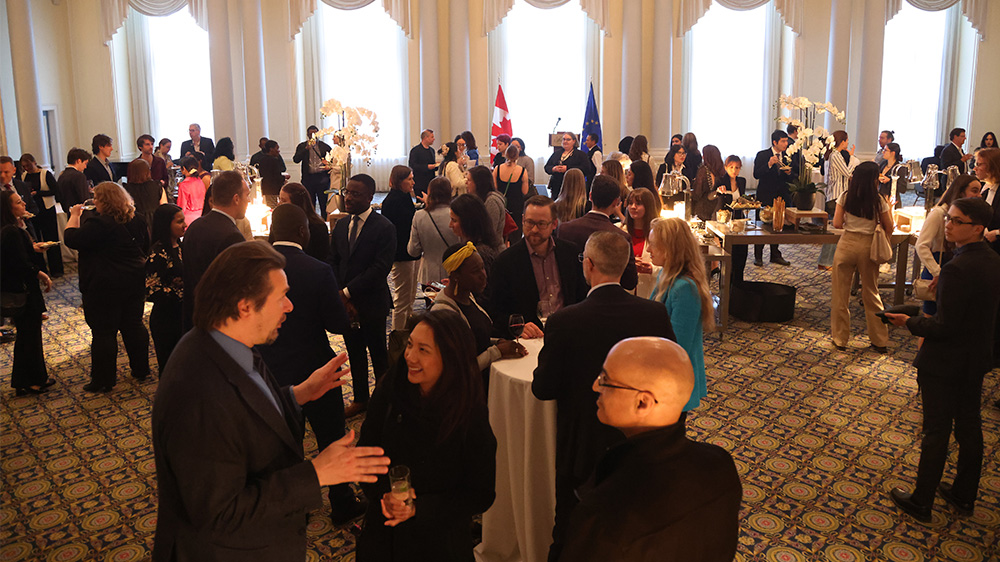
“I’m very pleased with my decision to attend the conference and if another opportunity arose I would gladly attend again,” says Huusko. “The whole weekend was well organized and everything went according to plan. The opening ceremony was so inspiring and, throughout the event in general, the opportunities for networking were invaluable.”
“My favourite part of the conference was definitely the networking aspect. I’ve met a lot of wonderful people, both students and professionals, who I’ve learned a lot from,” Galamb adds.
Serving as breaks in the simulated negotiations, several receptions and communal meals gave participants the chance to mingle with their peers, as well as meet with their real-world EU delegate counterparts and other European ambassadors in attendance. Opening remarks were delivered by Ambassador of the European Union in Canada Melita Gabric, while representatives from the German, Greek and Slovenian embassies offered encouragement and guidance to the students and professors.
“It was fantastic to see so many like-minded students working together to solve intricate policy challenges,” says Maitland. “The levels of professionalism on display were profound and the experience was something I’ll never forget. I would definitely participate in this challenge all over again if the chance arises.“
“For me, it was a fabulous experience to see our students putting their skills to use outside the classroom setting. Seeing students confidently engaging in in-depth conversations with diplomats about the country’s position on various current events is extremely rewarding for me as an educator,” MacRae adds.
The broad success of the event is also an achievement for MacRae on a personal level, considering that in years prior she had taken her students to EU-sponsored events in the U.S., and was instrumental in rallying support a similar, official event to come to Canada.
“In the past I have taken students to model EUs in the U.S., but this year we were able to arrange a Canada-specific event,” she says. “It will hopefully be the first of many.”


